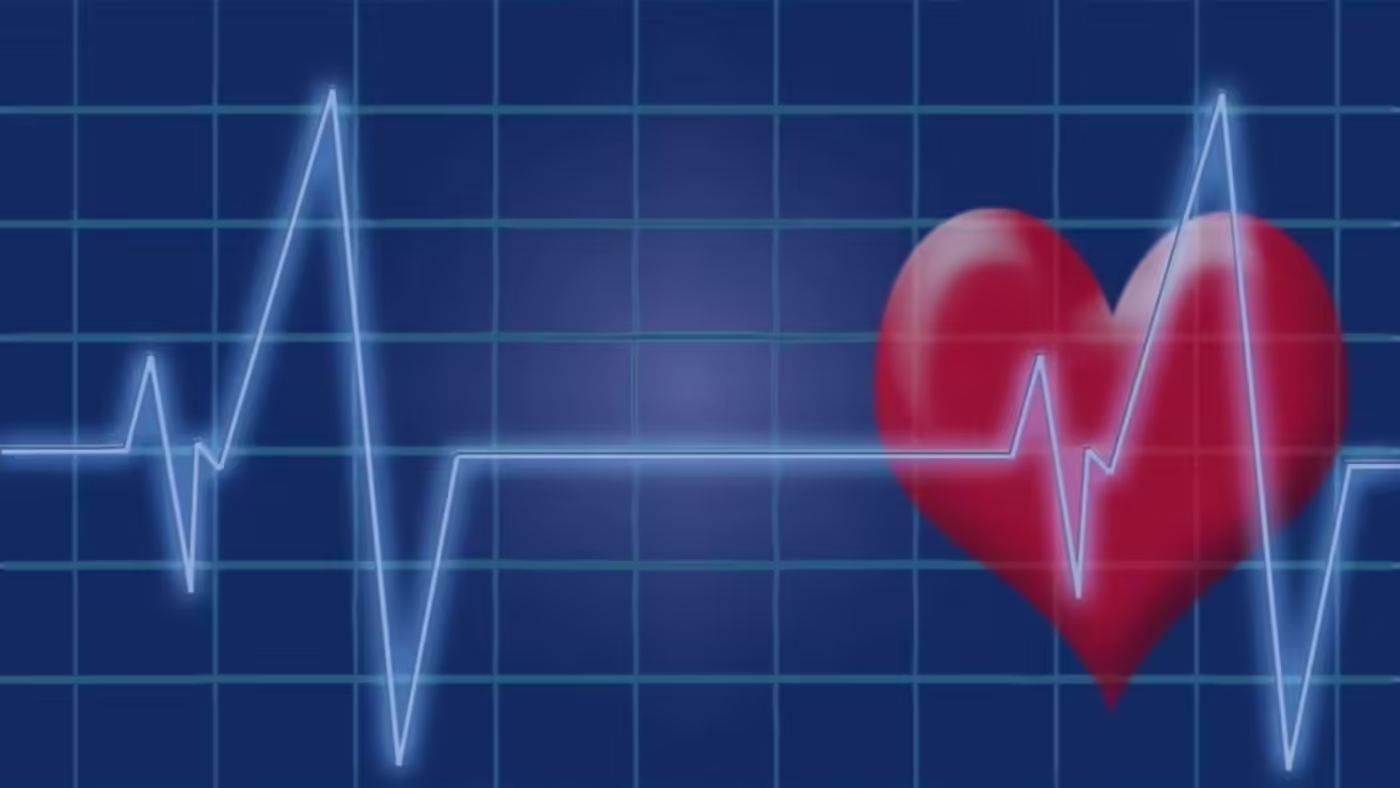No products in the cart.
Uncategorized
How to Prevent Cardiac Arrest– 10 Preventative Actions to Safeguard Your Heart
Sudden Cardiac Arrest (SCA) is a major public health issue, claiming over 350,000 lives annually in the United States alone, including many children.
SCA occurs when the heart unexpectedly stops beating or beats irregularly due to malfunctions in the heart’s electrical system, disrupting its ability to effectively pump blood throughout the body. While SCA can strike suddenly and without warning, there are several risk factors and preventive measures individuals can take to lower their chances of experiencing cardiac arrest.
By adopting a healthy lifestyle and making conscious choices to support heart health, we can empower ourselves to lead healthier lives and reduce the risk of this life-threatening emergency.
In this comprehensive guide, we will explore 10 key preventative actions you can take to safeguard your heart and minimise your risk of cardiac arrest.
1. Manage Stress

Stress is a significant risk factor that is often overlooked when it comes to maintaining cardiovascular health. The American Heart Association acknowledges that stress may contribute to unhealthy behaviours such as smoking, overeating, lack of physical activity, and poor diet, all which can negatively impact heart health and increase the risk of cardiac arrest.
To manage stress effectively, consider incorporating stress-reducing techniques into your daily routine, such as:
- Practising mindfulness or meditation
- Engaging in regular exercise
- Getting enough sleep
- Seeking support from friends, family, or a mental health professional if needed
By prioritising stress management, you can take an important step towards preventing cardiac arrest and promoting well-being.
2. Quit Smoking and Using Tobacco Products
Quitting smoking is a critical step in investing in your long-term heart health and the health of those around you. Smoking damages blood vessels, increases blood pressure, reduces oxygen levels in the blood, and promotes the development of fatty deposits in the arteries, all which can increase the risk of cardiac arrest.
Quitting smoking can significantly lower your chances of developing heart disease, decrease the risk of blood clots, and ultimately help safeguard against cardiac arrest.
If you smoke, consider seeking support from your healthcare provider or using cessation aids to help you quit successfully.
3. Adopt a Heart-Healthy Diet

Eating a nutrient-rich, balanced diet is one of the best ways to support cardiovascular health and reduce the risk of cardiac arrest.Focus on incorporating the following foods into your diet:
- Fruits and vegetables
- Lean proteins, such as fish, poultry, and legumes
- Whole grains
- Healthy fats, such as those found in nuts, seeds, and avocados
Limit your intake of foods high in sodium, saturated fats, and added sugars, as these can contribute to the development of risk factors for cardiac arrest, such as obesity, diabetes, and high blood cholesterol.
By making healthy dietary choices, you can lower your risk of cardiac arrest and support heart health.
4. Engage in Regular Physical Activity
Regular physical activity is essential for maintaining a healthy heart and reducing the risk of cardiac arrest. The American Heart Association recommends that adults engage in at least 150 minutes of moderate-intensity aerobic activity or 75 minutes of vigorous-intensity aerobic activity per week.
Some examples of heart-healthy physical activities include:
- Brisk walking
- Swimming
- Cycling
- Dancing
- Strength training
If you are new to exercise or have any health concerns, consult with your healthcare provider to develop a safe and effective physical activity plan tailored to your needs and abilities.
5. Maintain a Healthy Weight

Maintaining a healthy weight can play a significant role in preventing cardiac arrest. Being overweight or obese increases the risk of developing other conditions that can lead to cardiac arrest, such as high blood pressure, high cholesterol, and type 2 diabetes.
To determine if you are at a healthy weight, calculate your body mass index (BMI) and discuss your results with your healthcare provider. If you need to lose weight, aim for gradual, sustainable changes through a balanced diet and regular physical activity.
6. Limit Alcohol Intake
Excessive alcohol consumption and binge drinking have been linked to an increased risk of cardiac arrest. While moderate alcohol intake may have some potential cardiovascular benefits, the risks generally outweigh the potential rewards.
To minimise your risk, limit your alcohol intake to no more than one drink per day for women and two drinks per day for men, as recommended by the Dietary Guidelines for Americans. If you have a history of alcohol abuse or dependence, seek support from your healthcare provider or a substance abuse treatment program.
7. Get Enough Sleep

Adequate sleep is essential for maintaining health, including heart health. Most adults need between 7 and 9 hours of sleep per night.Insufficient sleep has been associated with an increased risk of various health problems, including high blood pressure, obesity, and heart disease, all which can contribute to the development of cardiac arrest.
To ensure you are getting enough quality sleep, establish a consistent sleep schedule, create a relaxing bedtime routine, and aim to create a sleep-conducive environment in your bedroom. If you have persistent sleep difficulties, consult with your healthcare provider to rule out any underlying sleep disorders or other health issues that may be impacting your sleep quality.
8. Stay Hydrated
Proper hydration is crucial for maintaining cardiovascular health. Dehydration can lead to a variety of health problems, including an increased risk of heart attack and cardiac arrest.
To stay hydrated, aim to drink plenty of water throughout the day. The recommended daily fluid intake varies based on factors such as age, sex, and activity level, but a general guideline is to drink at least eight 8-ounce glasses of water per day.
If you engage in prolonged physical activity or live in a hot climate. You may need to increase your water intake to replace fluids lost through sweat.
9. Manage Underlying Health Conditions
If you have any underlying health conditions that can increase your risk of cardiac arrest, such as high blood pressure, high cholesterol, or diabetes, you must work closely with your healthcare provider to manage these conditions effectively. This may involve taking prescribed medications, making lifestyle changes, and regularly monitoring your condition.
Regular check-ups and screenings can help identify any potential issues early, allowing for timely intervention and treatment.
By keeping your underlying health conditions under control, you can significantly reduce your risk of cardiac arrest and other cardiovascular complications.
10. Learn CPR and Use of an AED
While prevention is key, it is also important to be prepared in case of a cardiac emergency. Learning cardiopulmonary resuscitation (CPR) and how to use an automated external defibrillator (AED) can greatly increase the chances of survival for someone experiencing cardiac arrest.
CPR helps maintain blood flow and oxygen delivery to the brain and other vital organs until emergency medical services arrive. AEDs are portable devices that can deliver an electric shock to the heart, restoring its normal rhythm.
Many public places, such as airports, shopping malls, and gyms, have AEDs available for use in case of a cardiac emergency.
Consider taking a CPR and AED training course to learn these life-saving skills.
Conclusion of Cardiac Arrest
By adopting these 10 preventative actions, you can significantly reduce your risk of Sudden Cardiac Arrest and enhance your heart health. Prioritising lifestyle changes, managing stress, and staying informed empower you to lead a healthier life. Remember, proactive steps today can lead to a healthier heart tomorrow.
FAQS of Cardiac Arrest
Q1: What is the most common cause of cardiac arrest?
A: The most common cause of cardiac arrest is a heart attack or myocardial infarction, which can disrupt the heart’s electrical system and lead to irregular heartbeats.
Q2: Can cardiac arrest be prevented?
A: Yes, while cardiac arrest can strike suddenly, there are several preventive measures individuals can take to lower their risk, such as adopting a healthy lifestyle, managing stress, and controlling underlying health conditions.
Q3: What are the early warning signs of cardiac arrest?
A: Early warning signs may include chest pain, shortness of breath, dizziness, and fainting. But, cardiac arrest can sometimes occur without any prior symptoms.
Q4: Is there a difference between cardiac arrest and a heart attack?
A: Yes, while they are related, cardiac arrest and heart attacks are not the same. A heart attack is caused by a blockage in the heart’s arteries, which can lead to cardiac arrest if left untreated.
Q5: Can cardiac arrest be reversed?
A: Yes, if treated promptly with CPR and an AED, cardiac arrest can sometimes be reversed. But, the chances of survival decrease with each minute that passes without treatment.






